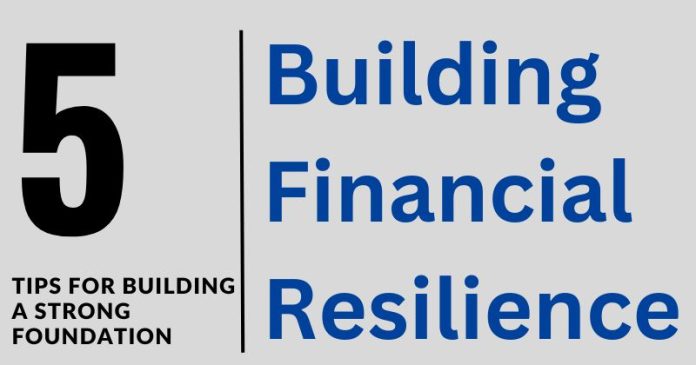A solid financial foundation is essential to achieving financial stability and freedom. Building this foundation can seem daunting, but it is achievable with the right mindset and approach. This blog post will cover five tips to help you build a solid financial foundation by focusing on basic financial principles such as budgeting, saving, and investing. By implementing these tips, you can start improving your financial situation and laying the groundwork for a secure and prosperous financial future.
1. Create a Budget
Creating a budget is the first and most crucial step toward building a strong financial foundation. A budget is simply a plan for your income and expenses. By creating a budget, you can track your spending, identify areas where you can cut back, and prioritize your financial goals.
To create a budget, start by listing all your sources of income and expenses, including fixed costs like rent, utilities, and loan payments and variable expenses like groceries, entertainment, and dining out. Subtract your total expenses from your income to see how much you have left over each month. Use this excess amount to allocate towards savings and other financial goals.
2. Save Regularly:
Saving regularly is another crucial step toward building a strong financial foundation. Establishing a savings plan that works for you and your financial situation is essential. Whether setting aside a percentage of your income or contributing a fixed amount each month, the key is to be consistent.
One effective savings strategy is to automate your savings by setting up automatic transfers from your checking account to your savings account each month. Doing this will make you less likely to skip savings, and it becomes a routine habit.
3. Pay off High-Interest Debt:
Paying off high-interest debt is an essential step toward achieving financial stability. High-interest debt, such as credit card debt or personal loans, can eat away your finances, making it challenging to achieve your financial goals.
Prior to investing, the best approach is to prioritize paying off your high-interest debt first. It’s not worth investing when the interest rate on your debt is higher than your potential investment returns. Once you’ve paid off your high-interest debt, you can use the money that was going towards debt payments towards savings and investing.
4. Invest for the Future:
Investing is an essential step toward building long-term wealth. Investing enables your money to grow over time and helps you achieve your financial goals. Several investment options are available, including stocks, bonds, mutual funds, and exchange-traded funds (ETFs).
It’s essential to diversify your investments to minimize risk. Investing in a mix of different assets, such as stocks, bonds, and mutual funds, can help spread your risk and increase your chances of success.
5. Protect Your Finances:
Protecting your finances is also essential to building a solid financial foundation. One way to protect your finances is by having adequate coverage, including health, life, and disability insurance.
Having an emergency fund is another way to protect your finances. An emergency fund can help you cover unexpected expenses, such as car repair or medical bills, without derailing your financial goals. It’s recommended to have at least 3-6 months’ worth of living expenses saved in your emergency fund.
Building a solid financial foundation is not a one-time event but an ongoing process that requires discipline and persistence. By implementing the tips discussed in this post, you can start building a solid financial foundation and work towards achieving financial stability and freedom. Remember, it’s never too late to start building your financial foundation, so start taking steps today to secure your financial future.





























